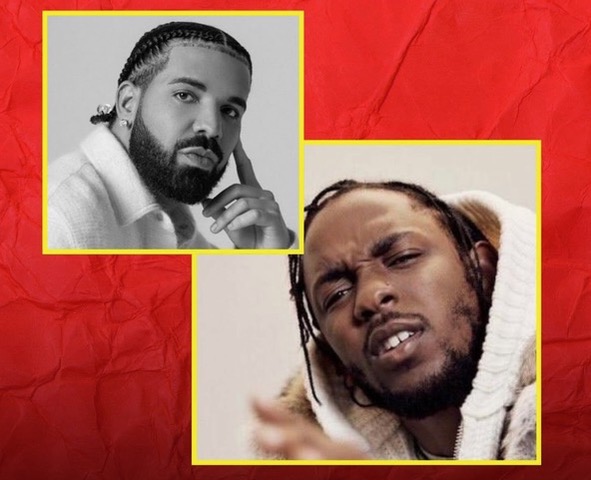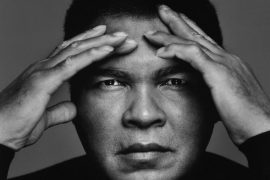Rivals in music are at war. Rapping, breakdancing, graffiti, DJing, and other forms of hip-hop all involve battle, which has a lengthy history.
Drake and Kendrick Lamar two hip-hop artists’s rap feud has sparked a global internet craze that has spread beyond social media conversation and the hip-hop community. Although there aren’t many music feuds in the business, this one appears to be spreading to the political sphere and beyond.
Rap has a long history of rivalry, and the most recent one between Drake and Kendrick Lamar, rumored to date back to 2013, is creating a lot of online excitement.
These two artists—one from the United States and one from Canada—are regarded as the greatest rappers of their generation. Through their songs, they have been subtly teasing one another for years. This is referred to as a “diss track” and is a staple of hip-hop tradition.
However, in March, they began to make more subtle jabs at one another when Lamar implied Drake wasn’t one of the best rappers during a guest verse on another artist’s song.
The back-and-forth comments have been all over the place, with Drake mocking Kendrick’s height and Kendrick criticizing Drake’s parenting style.
When asked what this specific feud meant to hip-hop, Canadian hip-hop veterans Shad and Choclair replied that fighting is normal and that there is a distinction between art and actual violence.
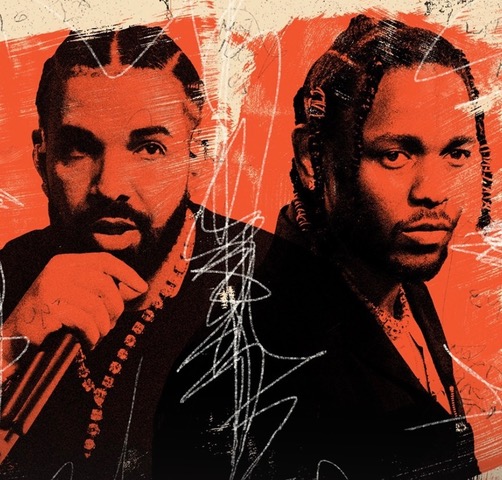
Drake, a Toronto, Ontario native with five Grammy Awards, is one of the few artists to have appeared on Billboard’s Artist 100 chart for more than 500 weeks, a measure of artist popularity.
Kendrick Lamar, a Compton, California native, is the recipient of 17 Grammy Awards and a Pulitzer Prize for his album DAMN.
“These two heavyweights are enormous. It’s like Coke and Pepsi going up against each other,” rapper Choclair, a four-time Juno winner, remarked.
Producer of the television show Hip-Hop Evolution and hip-hop historian Shad declared, “I call this the biggest battle I’ve ever witnessed in hip-hop.”
In their ongoing spat, Drake and Lamar have leveled some very serious accusations against one another. One of Drake’s security personnel was shot on May 7 outside the rapper’s opulent Toronto home..
People were quick to make a connection between the shooting and the ongoing feud between him and Kendrick, but there is no known evidence of a connection at this point according to Toronto police.
Shad stated that the origins of hip-hop were as a counterculture to violence. Rap battles, according to Choclair, were originally intended to pique fans’ interest and determine who the finest lyricist was. Rap feuds, he added, always have the potential to turn violent, so hopefully they stay artistic and “cooler heads will prevail.”
People were dying in fights during the 1990s. Biggie and Tupac were both killed. Nobody wishes for such to occur once more.
Part 2 – MIGHT DELETE LATER…
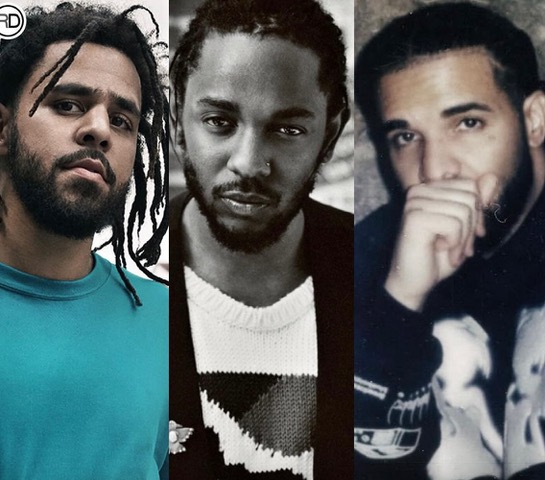
In the realm of hip-hop rivalries, few feuds have captured the attention and imagination of fans quite like the epic clash between Drake, Kendrick Lamar, and, by proxy, J. Cole. The genesis of this beef can be traced back to the explosive aftermath of the release of “Like That” by Metro Boomin and Future, featuring a scathing verse by Kendrick Lamar that kinda shook the foundations of the rap world. This song has already gone platinum at my spot because it’s just that good. They might’ve given us a song of the summer!
The track “Like That” reverberated through the industry, with Kendrick Lamar delivering a blistering diss aimed at what many speculated to be the “big three” of modern hip-hop: Drake, J. Cole, and himself. In a bold declaration, Kendrick proclaimed, “It’s just big me,” insinuating a hierarchy that excluded his fellow rap titans.
Essentially, this lyrical grenade set off a chain reaction, igniting a rap beef of epic proportions that would define the next couple of days on Twitter. Fans and critics alike eagerly awaited responses from Drake and J. Cole as the tension between the three artists escalated to unprecedented levels. Days passed, and the rift between these hip-hop heavyweights unfolded mostly on social media on Drake’s part with his numerous Instagram posts. But fear not, the diss was loading.
But now we must look to Jermaine.
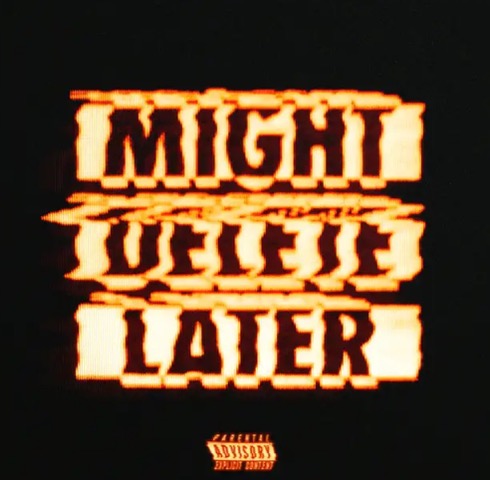
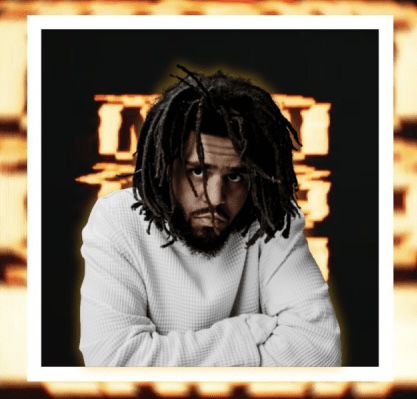
While J. Cole is known for his introspective lyricism and thought-provoking content, he recently made a few ripples with an anticipated project titled “Might Delete Later.” The project featured a standout track titled “7 Minute Drill,” and while only 3 minutes long, it served as a response to Kendrick Lamar’s incendiary verse on “Like That,” igniting a firestorm of controversy and debate among fans and critics alike. Imagine the most obnoxious kinds of rap fans talking for hours on Twitter about this. It’s almost funny. But hold on, it gets funnier. In the aftermath of the release of “7 Minute Drill,” things take an unexpected turn when J. Cole, in a surprising move, publicly apologized and expressed his desire to quash any brewing beef with Kendrick Lamar during the Dreamville Music Festival.
This decision by J. Cole to extend an olive branch and seek reconciliation was met with mixed reactions from fans and critics. Some have criticized J. Cole’s actions, labeling them as embarrassing or even spineless, questioning his willingness to backtrack on the confrontational stance he took in “7 Minute Drill.” Others, however, view J. Cole’s gesture as a display of maturity, humility, and a commitment to peace and unity within the hip-hop community. While the controversy surrounding J. Cole’s decision to apologize may linger in the minds of fans and industry insiders, it’s essential to acknowledge the complexity of the situation and the various factors at play. J. Cole’s willingness to address the conflict head-on through music and later extend a gesture of reconciliation speaks volumes about his character and his commitment to fostering positive relationships within the music industry, to me. In a genre often characterized by bravado and ego, J. Cole’s decision to prioritize unity and understanding is a refreshing reminder of the power of empathy and communication in resolving conflicts and building bridges. And that’s way more respectable than what Drake does onto do. In this realm of rap and hip-hop, the art of the diss track has long been revered as a platform for lyrical prowess and raw authenticity. But a line must now be drawn with Drake’s recent leaked diss track against Kendrick Lamar, featuring AI voices of Tupac and Snoop Dogg. This has not only raised eyebrows but also ignited a firestorm of controversy within the hip-hop community about the legitimacy of a diss! By utilizing AI-generated voices of iconic figures , Drake has crossed a line that undermines the very essence of a diss track.
The essence of a diss track lies in the personal and direct confrontation between artists, showcasing their wit, skill, and authenticity. By resorting to artificial voices, Drake not only invalidates the creative concept of a diss but also disrespects the legacy and authenticity of the hip-hop genre as a whole of embracing who you are. Hip-hop culture has always been rooted in authenticity, storytelling, and raw emotion. The use of AI voices in a diss track detracts from these foundational elements, turning what should be a genuine expression of artistry into a shallow imitation. This move by Drake not only diminishes the impact of his diss but also cheapens the art of combative rap itself. It’s worth making note of the contrast in Kendrick Lamar’s approach, notably in ‘The Heart Part 5,’ which demonstrates a deep respect for the traditions and legends of hip-hop. Kendrick’s tribute to the greats showcases how technology can be used to pay homage and show appreciation for those who have paved the way rather than using it as a gimmick to bolster a diss track.
Even J. Cole’s diss didn’t disappoint me this badly. I hope this leak turns out to be fake, but until then, it’s evident that Drake’s decision to incorporate AI voices in his diss track not only missed the mark creatively but also showcased a lack of understanding and respect for the culture he claims to represent. As an artist, Drake may have had various successes, but this attempt at a diss track stands out not for its lyrical prowess but for its misstep in insulting the very essence of hip-hop. Aubrey Graham, known to the world as Drake, may have made a name for himself as a musician and actor, but it’s unfortunate that his best performance in this scenario was in being Drizzy. The use of AI voices in diss tracks is a slippery slope that risks eroding the foundations of a genre built on authenticity, storytelling, and genuine expression.
 Allison Bolden (N’DIGO Kickback – Intern Blogger/Chicago State University)
Allison Bolden (N’DIGO Kickback – Intern Blogger/Chicago State University)


